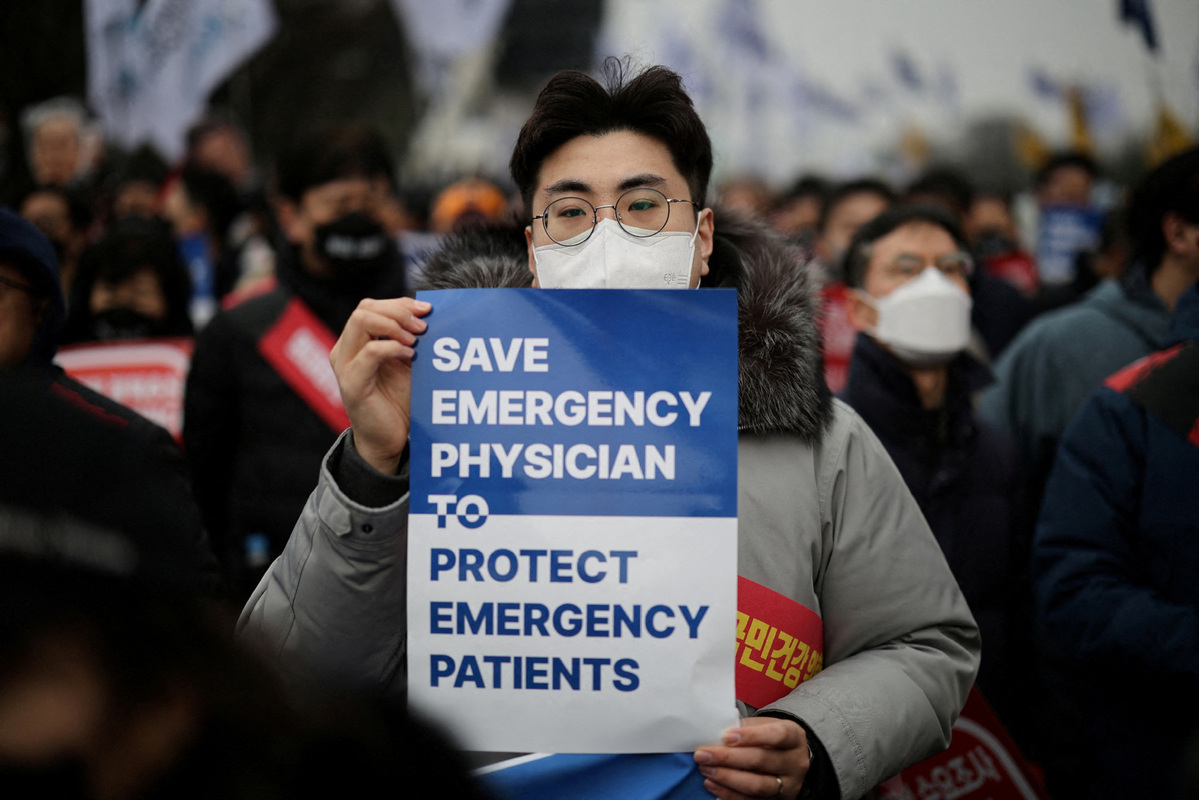Seoul expands medical seats despite strike
Govt sticks to new plan to add 2,000 more slots amid monthlong protest


South Korea's government announced on Wednesday an additional 2,000 medical school admission seats to universities nationwide from next year, sticking to its plan despite massive protests by doctors.
The decision to increase the medical school enrollment quota to 5,058 is "the minimum number" to address the shortage of doctors, South Korean Prime Minister Han Duck-soo said in a national address in Seoul.
Noting studies have shown that South Korea will face a shortage of 10,000 doctors by 2035, Han said the key of the medical reform is to ensure that South Korean people can enjoy satisfactory healthcare services now and in the future.
"This is the last golden time for healthcare reform. The government will focus on the people only and fulfill its mission," he said, adding that the compromise the government made in 2000, when the number of medical school admissions was reduced by 315 seats because of opposition from the medical community, has resulted in the anticipated shortage in 2035 and the conflict today.
Around 90 percent of South Korea's trainee doctors have walked out of their jobs for a month to protest the government's plan. Doctors' groups refuted that the increase of 2,000 seats is too steep and will lower the quality of medical education and services.
Announcing the details after Han's speech, South Korean Deputy Prime Minister and Education Minister Lee Ju-ho said 82 percent of the additional seats were distributed to 27 universities outside the capital area, and the remaining 18 percent were allocated to five medical schools in Gyeonggi Province and Incheon city bordering Seoul.
No allocation was made for medical schools within the capital, Lee said.
The main reason for the allocation was to narrow the healthcare gap among different areas across the country, especially the gap between the Seoul metropolitan area and others, so people can have access to quality medical services anywhere, he said.
After the increase, the number of medical students of some universities will expand from the current average of 77 to 127 seats every academic year, Lee said, noting this is still relatively low compared with 146 in the United States and 243 in Germany.
The announcement marks the first time in 27 years that the number of medical school admission has increased since 1998.
"The allocation of the medical school admission quota is not the end but the beginning of implementing medical reforms," Lee said.
In the future, the Ministry of Education will cooperate with relevant ministries to support universities to ensure the number of teaching staff members and expand facilities, he said.
Han said a special committee on medical reform, to be launched next month under South Korean President Yoon Suk-yeol, will become a platform to collect ideas from doctors and experts.
He urged striking trainee doctors to return to work and medical students who are boycotting classes to return to campus.
On Wednesday before the announcement, the country's largest coalition of doctors, the Korean Medical Association, said the government should not force to push forward its reform policies that will make the medical system collapse and threaten people's lives.
Triggering resignation
Professors of 16 medical schools, including the Seoul National University, have decided to resign en masse from Monday, local media reported.
The rising tension between the government and doctors has caused frustration to the public as hospital operations have been disrupted.
In the comment section of the Yonhap News Agency, one netizen named David wrote that only the patients will die because of the conflict between the government and the "doctors' cartel".
Another named Melody wrote, "Honestly, I don't understand why people are against the plan to increase the number of medical school admissions.
"It would be beneficial for the medical development and all parties if they proactively discuss it and cooperate (even if the other side does not like it)."
kelly@chinadailyapac.com

































